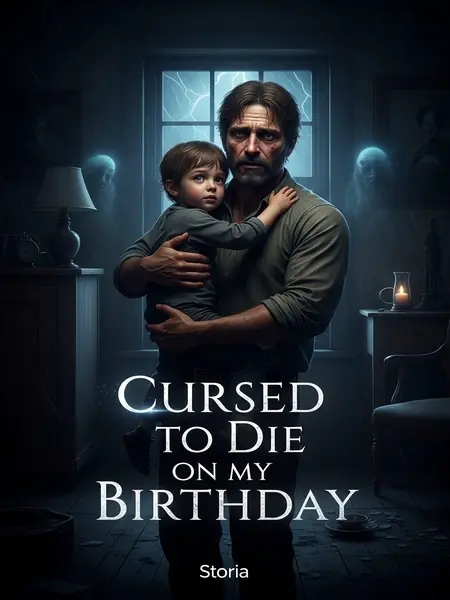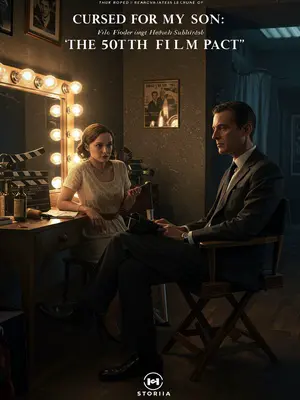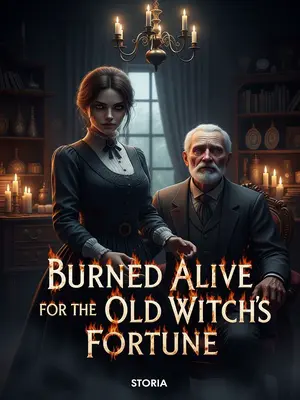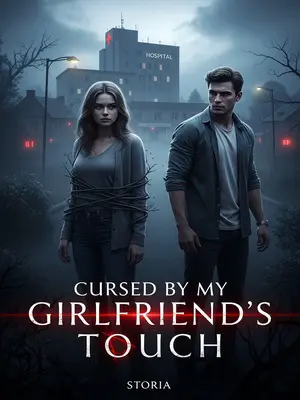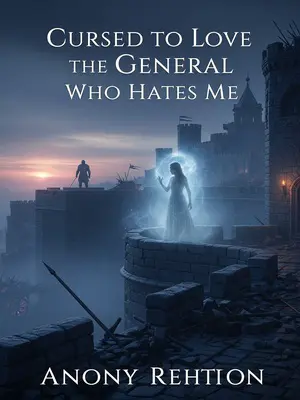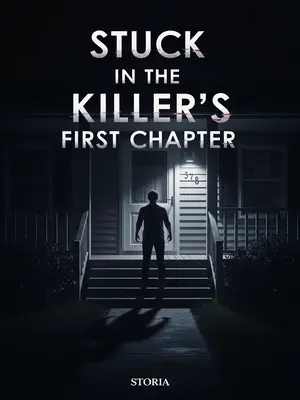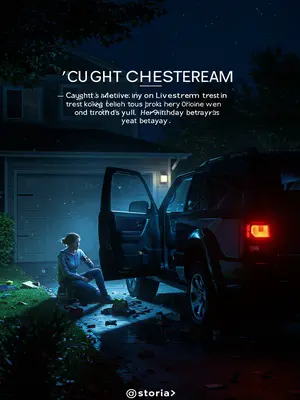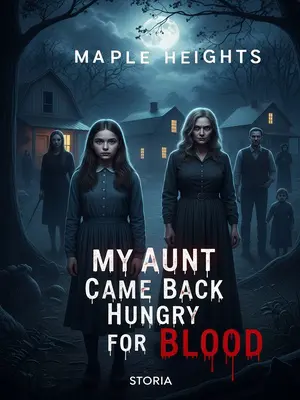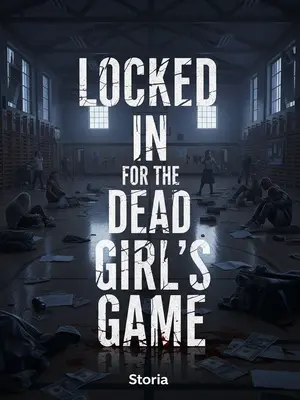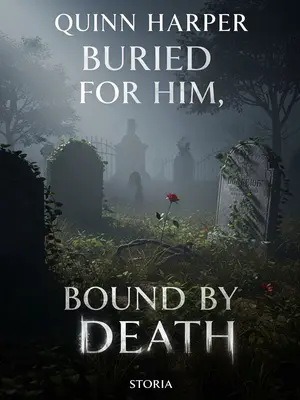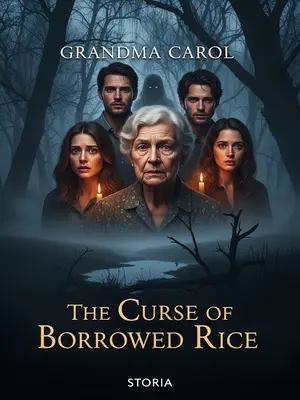Chapter 1: The Pattern in Black Ink
My great-grandfather lived to sixty, my grandfather made it to fifty, my dad only lived to forty—so how long will I live? The question wasn’t just in my head. It was printed in thick, black ink on my son’s homework, staring back at me like a dare.
A cold shiver ran up my spine, and for a second, the kitchen seemed to shrink around me. That question was supposed to be math, but it felt like a threat—a countdown I’d never wanted to see.
"Thirty, right? Isn’t it obvious? You can’t even get this one?" My wife leaned over, giving the page a quick glance. "I saw you staring at it forever. I thought it was some crazy math problem."
She let out that little snort she does when she’s teasing but barely paying attention, thumb flicking over her phone screen. The kitchen TV was humming in the background, tuned to the evening news, and the faint smell of burnt toast hung in the air. A pile of mail—mostly bills and grocery ads—sat next to the salt shaker. Her words hit me like a punch, stirring up the dread I’d been trying to bury.
"Where’d this question come from?" My hands were shaking. No way. Not this question. Not now. My chest tightened, and for a second, I forgot how to breathe. God, let this just be a coincidence. After all, I’m turning thirty this year.
My voice came out rougher than I wanted, and I wiped my palms on my sweatpants, hoping she wouldn’t see. A draft from the hallway sent the mail fluttering on the table. I tried to steady myself, but that image of my birthday, three months away, hung in my mind like a noose.
"Probably from the tutor at after-school," my wife shrugged, barely looking up. I took a deep breath and picked up the workbook. Besides that one, the rest were regular elementary school math problems.
She went back to scrolling, not even glancing my way. I thumbed through the pages, pretending to check, but my eyes kept snapping back to that question. Even the smudge in the paper around it seemed menacing.
But this question—it looked like a pattern problem, but it was just too pointed. Too personal. I kept staring at the numbers, feeling like the universe was mocking me. I glanced out the window—just the usual gray drizzle sliding down the glass. I shivered and pulled my hoodie closer.
"This after-school program’s no good. We should switch." I tried to sound laid-back, but my voice cracked. The next day, my son’s homework from regular school had the same creepy question.
While packing his lunch, I found another worksheet in his backpack—with that same line. My stomach dropped, and I nearly cut my finger on the apple slicer.
"My great-grandfather lived to sixty, my grandfather made it to fifty, my dad only lived to forty—so how long will I live?"
The answer was still thirty. I finally lost it:
I slammed the notebook closed—hard. My son flinched, fingers pausing mid-button on his controller. He looked at me, eyes wide, like he wasn’t sure if he was in trouble. "What kind of garbage question is this? Why are they making kids do this stuff?"
But my wife just frowned, pushing her hair behind her ear, tired and frustrated. "It’s just a dumb math pattern, babe. Seriously, if you’re too tired to help, just say it. Don’t bite my head off."
Guilt knotted in my stomach. Seeing her upset, I swallowed my words and backed off.
I stuffed my hands into the pockets of my old OSU hoodie and nodded, trying to keep the peace. The last thing we needed was another fight about parenting.
But the truth was, I really am almost thirty—three months left. My dad, grandpa, and great-grandpa all died on their birthdays, on the very day they turned that age.
Every birthday, my chest tightens. Even as a kid, I’d seen those matching dates on the faded family tree in Mom’s hallway. It always felt more like a countdown than a coincidence.
I didn’t buy that it was just random. With a parent-teacher conference coming up, I decided I’d ask the math teacher about it—maybe get some answers.
I practiced what I’d say, rehearsing in the bathroom mirror while brushing my teeth. The idea of confronting a teacher over a homework problem made me feel ridiculous, but I couldn’t let it go. The walls of our little ranch house felt like they were closing in.
Once I decided, I searched for the question online, but nothing came up. Not on any homework app, not anywhere. It was like the question didn’t exist outside my family.
Even Reddit and the local parent Facebook groups turned up nothing. I scrolled late into the night, blue light burning my eyes, but it was like the question was a ghost. Creepy.
So it’s super obscure—so how did both the after-school tutor and the school teacher assign it?
My brain spun with theories—some weird local prank, a viral challenge I’d missed. I kept seeing those numbers: sixty, fifty, forty…
The more I thought, the more wrong it felt. I jumped in my car and drove two hours back to Mansfield, just to check the family records.
The drive was all empty miles, static on the radio, late-night talk shows. Mom’s porch light was still on, stretching shadows over the lawn. My hands shook as I dug through the musty boxes in her closet, searching for the family Bible where we kept the dates.
Our family only started keeping track with my great-grandfather. I flipped through the brittle pages, squinting in the lamp’s glow. My grandfather’s shaky handwriting listed the ages and dates. It felt like the ink itself was warning me.
Sixty, fifty, forty. Each line like a domino.
The dates stacked, each generation dying younger. My breath fogged the glass as I leaned in, hoping to find a mistake, but the numbers wouldn’t change.
Mom startled when she saw me digging through the records. "What’s wrong? Did something happen?"
She met me at the door in her old flannel robe, curlers still in her hair, worry all over her face—she’d never gotten used to late-night visits since Dad died.
I didn’t hide anything from her. I told her everything. She was stunned for a second, then laughed that deep Midwest laugh—half exasperated, half fond. "Oh, come on, you’re a grown man and you still believe in this stuff? Your great-grandpa was dirt poor—sixty was a long life. Your grandpa got really sick at fifty and passed. And your dad—it was a car accident. Just a coincidence."
She poured me a mug of Folgers and patted my arm. The living room smelled like lemon-scented furniture polish and old birthday cards. For a second, I almost felt like a kid again, safe and stupid.
"But they all died on their birthdays. The exact day."
I took a shaky sip, the coffee burning my tongue. "Mom, it’s not just the ages. They all died on their birthday. All of them."
"There’s a reason for that, too." She patted my hand. "Your dad told me, your great-grandpa didn’t even know his real birthday. When your grandpa made the records, he just wrote the birthday and the date of death as the same day."
She leaned in, voice soft. "People didn’t keep good records back then. Half those dates are probably guesses anyway."
"Grandpa made the records?"
I blinked, surprised. I’d always thought the tradition was older. "Wait, you mean Grandpa started all this?"
"Yeah."
She nodded, thinking back. "He got into genealogy when the farm did better."
"I saw the first person was great-grandpa, so I thought he started it."
I ran my finger along the page. The entries stopped before great-grandpa.
"No, not at all. Our family only started doing better in your grandpa’s time, so he took charge and made the records. Before that, everyone was too busy just getting by to worry about birthdays."
She gave a tired smile, sipping her coffee. "Before that, everyone was too busy just getting by to worry about birthdays."
"So that’s how it is."
I let out a breath I didn’t know I was holding. The tension in my shoulders eased a little, but I couldn’t shake the feeling that something was still off.
Once I understood where the records came from, Mom started telling me about Grandpa’s death:
She set her mug down with a soft clink. "Your grandpa was really sick back then. He was barely hanging on a few days before his fiftieth birthday. Your dad had already planned a party, and your grandpa forced himself to hold out until his birthday, ate a bite of birthday cake, and then passed away."
She dabbed her eyes with a tissue, but her voice was steady. "He always wanted to see one more year, even if it was just by a day."
"As for your dad, even though he died on his fortieth birthday, it was because he went out to buy a cake that day and got hit by a car. Just a coincidence, don’t dwell on it."
She squeezed my hand, her wedding ring cool against my skin. "Sometimes, life just kicks you when you least expect it."
Still, I couldn’t help but tell her about my son’s homework.
I showed her the worksheets, watching her face. She just shook her head, lips pressed tight.
She reacted like my wife: "It’s just a pattern question, but whoever wrote it really has no sense—making a joke out of life and death. You’re overthinking."
She tossed the paper aside, muttering about modern teachers and their weird sense of humor. I tried to laugh along, but it sounded hollow.
I sighed. I’d noticed the pattern as a kid, and every year, the shadow grew darker. Those two homework questions dragged it all back up.
My mom tried to reassure me again: "Don’t be scared, honey. I’d never let anything happen to you. If I say it’s fine, it’s fine."
She ruffled my hair, just like when I was a kid hiding from thunderstorms under the covers. The grandfather clock in the hallway chimed midnight, echoing through the house. For a moment, I almost believed her.
